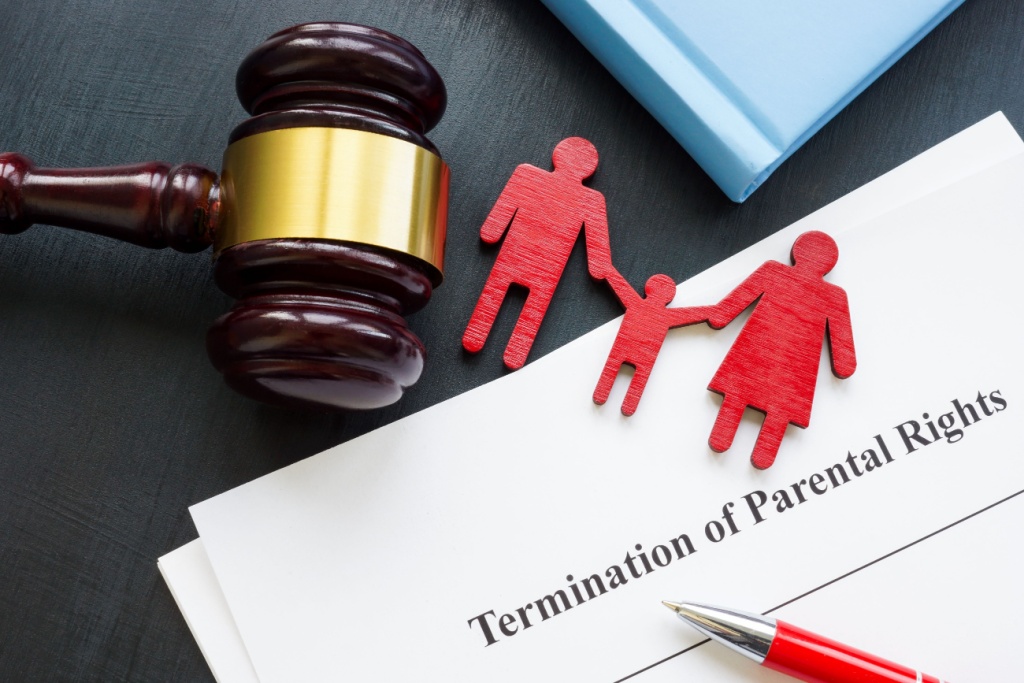In Maryland, a biological parent cannot independently terminate the other biological parent’s parental rights. This means that one parent cannot eliminate the other parent’s legal responsibilities and rights concerning their child without adhering to the appropriate legal processes. However, parents do have the option to end their relationship with their child. Yet, before making such a decision, parents need to grasp the consequences of relinquishing their parental rights, as this choice is irreversible and will influence their connection with their child.

What Does Termination of Parental Rights Mean?
Termination of parental rights refers to a legal process in which an individual’s parental rights and responsibilities are permanently removed. This means that the person is no longer recognized as the legal parent of the child. Once these rights are terminated, the individual loses all privileges related to parenthood, including the right to visit, communicate, or make decisions on behalf of the child. This process can occur for various reasons, including abuse, neglect, or the inability to provide a stable and safe environment for the child. However, the termination of parental rights is a serious legal action that can significantly impact the child’s future, often leading to the child being placed for adoption or under the care of another guardian.
Different Ways To Terminate Parental Rights in Maryland
Parental rights can be terminated in two ways: voluntarily or involuntarily. In both scenarios, the process takes place in court, where a judge assesses the circumstances and ultimately makes the decision. The judge’s ruling is guided by one significant principle: the best interest of the child or children involved. This means every effort is made to prioritize the child’s well-being, safety, and happiness throughout the proceedings.
Voluntary Termination of Parental Rights
This process occurs when a parent actively relinquishes their legal rights and responsibilities toward their child. This decision eliminates all parental rights, including the right to make decisions about the child’s upbringing, education, and healthcare, as well as the right to visit or maintain a relationship with the child. In addition, once voluntary termination is finalized, it is irreversible—parents cannot regain their rights afterward. This path is often taken during adoption proceedings, where a birth parent consents to give up their rights to allow another person, including at times a stepparent, to adopt the child. Additionally, some parents may choose this option when they recognize their inability to provide adequate care or support for their child and decide to allow another family member to step into their place.
Involuntary Termination of Parental Rights
Involuntary termination occurs when a third party, such as the state, a local Department of Social Services, initiates legal action to terminate a parent’s rights against their will. This process generally happens in situations where there are concerns related to neglect, abuse, abandonment, or other circumstances that could jeopardize the child’s welfare. However, the court will thoroughly investigate and hear evidence from multiple sources before determining whether terminating parental rights is in the child’s best interest. If the court finds sufficient grounds for termination, the parent’s rights will be permanently revoked, allowing the child to be placed in a more secure, stable environment.
Although these two methods differ, both prioritize the child’s well-being. The legal framework is designed to ensure that all decisions are made with careful consideration of what will benefit the child most in the long run.
Contact Rice Law Today To Better Understand Your Parental Rights
If you are seeking guidance regarding parental rights in Maryland or want to know more about what happens when a parent loses these rights, contact Rice Law today and review your questions with one of our experienced family law attorneys.
Blogs published by Rice Law are available for informational purposes only and are not considered legal advice on any subject matter. The reader understands that by viewing blog posts no attorney-client relationship is created between the reader and the blog publisher, Rice Law. The blog should not be used as a substitute for legal advice from a licensed professional attorney, and readers are urged to consult their own legal counsel on any specific legal questions concerning a specific situation.

